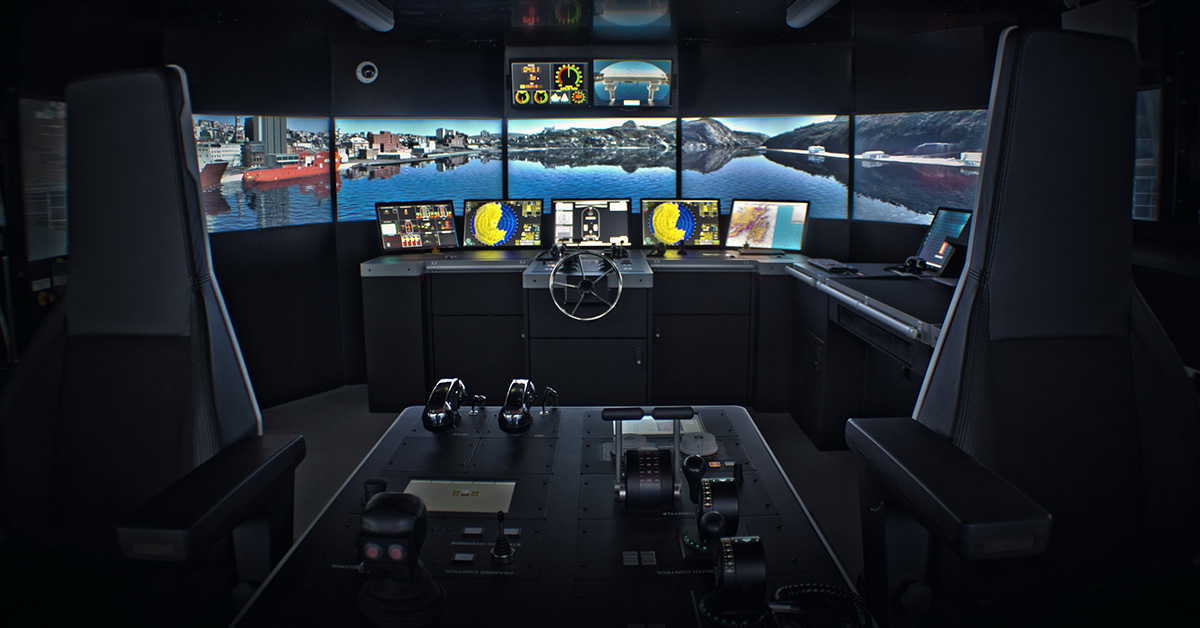Measuring more than 200,000 km, Canada’s coastline is the longest of any country in the world and plays an important role in our economy and identity. Just last month, the Government of Canada announced funding for the Marine Training Program designed to assist women and Indigenous people access training for careers in the marine industry over the next three years: in the Atlantic Region through Nova Scotia Community College (NSCC), and on the West Coast through BCIT and Camosun College. The program is part of the $1.5 billion national Oceans Protection Plan launched in 2016: the largest investment the Government of Canada has ever made to protect our coasts and waterways, aiming to ensure that our oceans are cleaner, healthier, and safer for years to come.
Elsewhere, Canadian colleges and institutes are leading ground-breaking research in the marine and coastal sector. Last month, we tackled colleges and institutes’ leadership in freshwater; this week, let’s turn our attention to Canada’s other water resources: aquaculture, ocean geomatics, marine engineering, and more!
- On the Pacific coast, Vancouver Island University’s Centre for Shellfish Research (CSR) undertakes technical and scientific research to respond to the needs of a growing and diversifying shellfish aquaculture industry, including new species and technologies, oceanography, and environmental stewardship.
- Camosun Coastal Centre at Camosun College, located on the Songhees Nation land in Esquimalt, BC, offers training to sustain and grow a strong marine-sector workforce, while providing innovative solutions to increase the competitiveness of companies in the industrial marine sector.
- In central Canada, Georgian College’s Owen Sound campus is home to the Centre for Marine Training and Research (CMTR) specializing in simulation at the leading edge of marine training. The facilities include a world-class Navigational Simulator, Engine Room Simulator, and Survival Craft Operation Simulator.
- In the Gulf of St Lawrence, the Maritime Institute of Quebec, a College Centre of Technology Transfer (CCTT) affiliated with the Cégep de Rimouski, conducts applied research in areas such as maritime engineering and environmental technologies to provide solutions for marine-industry professionals. For example, one project focuses on developing a hybrid propulsion system for fishing vessels to minimizing both operational costs and ecological impact.
- Similarly, Merinov, a CCTT affiliated with the Cégep de la Gaspésie et des Îles specializes in applied research related to fishing, aquaculture, and the processing and development of aquatic products.
- On the Atlantic coast, the Applied Oceans Research Group (AORG) at Nova Scotia Community College (NSCC) is using innovation in ocean survey instruments, including subsea camera systems and multi-beam echo sounders (MBES) in a series of projects to map the ocean floor. NSCC is also leading at the Centre for Ocean Ventures and Entrepreneurship (COVE), a collaborative space for applied innovation in the ocean sector. COVE tenants benefit from collaborative spaces, shared equipment, workshops, direct ocean access, incubation space, and more.
- The Centre for Marine Research at the Université Sainte-Anne works closely with partners to ensure the sustainability of the marine industry in rural communities through innovation, education, and research. Project areas include commercial fishing, aquaculture, and adapting to the effects of climate change.
- The Wave Energy Research Centre at College of the North Atlantic benefits from significant waves, tidal currents, and a year-round ice-free harbor to conduct research on the use of ocean wave energy to supply sea water to land-based aquaculture.
- The Marine Institute of Memorial University is home to world-class facilities providing training, applied research opportunities, and industrial support for ocean industries. For example, the institute’s Centre for Marine Simulation (CMS) uses advanced simulation technology to conduct research into conditions affecting mariners cognitive and physical performance, and improving the safety and efficiency of offshore operations in harsh maritime environments. The Centre for Applied Ocean Technology (CTec) conducts research and data collection projects to more effectively manage and sustainably develop coastal ocean areas, such as the Newfoundland and Labrador Seabed Atlas.
College of the North Atlantic, Marine Institute, Merinov, and NSCC are also among the partners involved in Canada’s Ocean Supercluster aiming to drive sustainable economic growth from our oceans. With such wide-ranging expertise in the marine industry, colleges and institutes surely have a valuable role to play!

